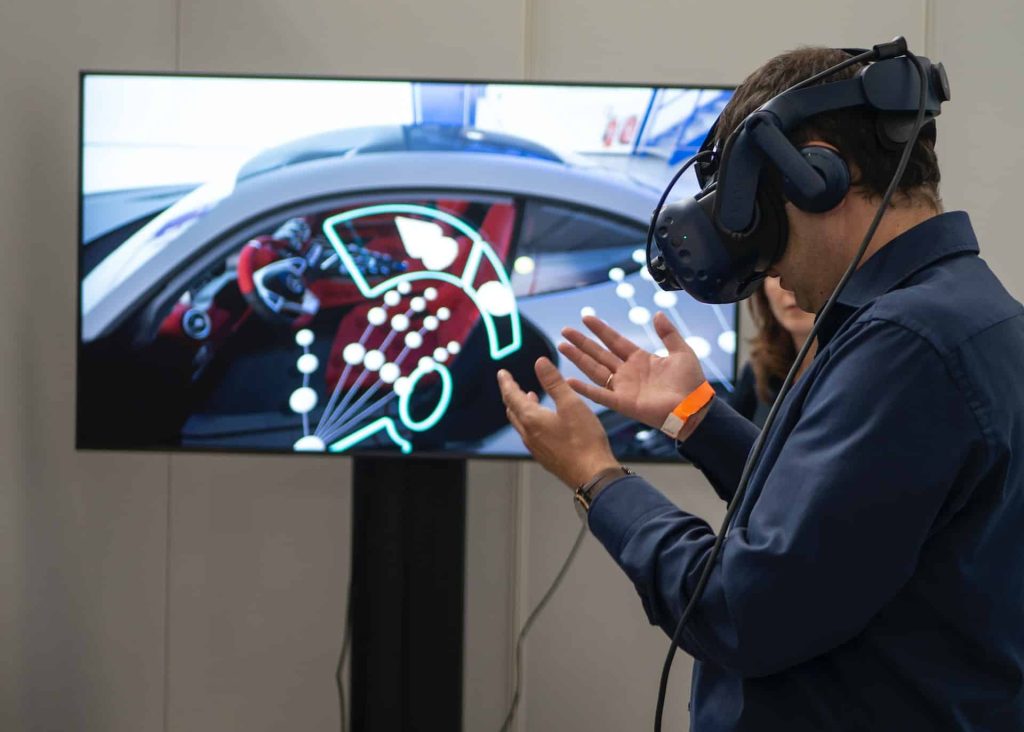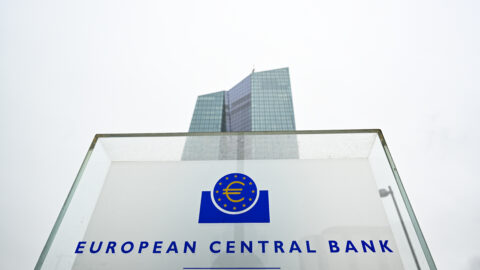You may not have come into contact with the Metaverse at all or have never heard of it before. Don’t worry, you’re certainly not alone in that. However, some companies and investment firms are convinced that the Metaverse could be THE next big trend.
One of them is Mark Zuckerberg, who has already renamed his company from Facebook to META in 2021. McKinsey, a US consulting firm, published a study in in May 2022 forecasting that the metaverse could be worth € 5trn by 2030. In the same study, we learn that in the first 5 months of 2022, companies have put more than $ 120bn into the development of the Metaverse. Private equity firms have invested more than $ 13bn in the Metaverse in 2021. Impressive numbers, which is why investors might want to keep an eye on it.
What is the Metaverse?
To date, there is no clear definition of what exactly the metaverse is. But the consensus is that it can take the Internet to a new level. We have to distinguish between Web 3.0 and the metaverse. While the developers of both concepts want to redefine the Internet, they are pursuing different goals.
| WEB 3.0 | METAVERSE |
| Decentralized data storage | Physical and digital world merge |
| Users have data control | Immersive experiences |
| Open and transparent | Three-dimensional spaces |
| VR/AR Headsets |
The developers of Web 3.0 are trying to create a new decentralized Internet in which users regain control over their data. They criticize the current state of affairs, in which a few companies (Google, Facebook, Amazon,…) “control” the Internet and earn money with their customers’ data. In Web 3.0, the users themselves decide who gets access to which data and they are also the ones who can earn money with their data. Technically, this works in such a way that the data is stored decentrally on a blockchain (e.g. Ethereum). Thus, no central entity has control over the data of the customers.
The metaverse can be decentralized, but it does not have to be. The goals are different:
- The physical and digital worlds merge in the metaverse
i.e. the digital world is not a purely invented world, but real elements and people from the physical world are mirrored into the digital world.
- We experience the metaverse immersively
Until now, we experience the Internet through a screen, often through our smart phone. In the Metaverse, we immerse ourselves in the Internet. How is this supposed to work? In the metaverse, we have a mirrored identity (a so-called avatar) with which we interact in the digital world. But in addition to people, physical elements are also mirrored in the metaverse. Assets can be tokenized and traded. Digital assets are so-called NFTs (non-fungible tokens) whose ownership is often stored in a decentralized manner.
- We experience the metaverse three-dimensionally
It stands to reason that the final and full experience is three-dimensional. When we move as avatars in the digital world, we need appropriate hardware to do so.
Wearing such hardware may seem cumbersome or inconvenient from today’s perspective. In addition, the costs are currently still high. For example, the Meta Quest Pro virtual reality headset currently costs €1,799.
Wide range of applications
From today’s perspective, we don’t know if the Metaverse will be the next big trend. At the moment, it is mainly limited to the gaming market. But the fact is that the metaverse has the potential to expand into wide areas of the economy. In the following, I would like to name a few examples that can be strongly influenced by the metaverse (without claiming to be complete):
- Education
Some universities are already working on a metaverse strategy. This will make it possible for students not only to listen to a lecture virtually, but also to work together with professors and other students in a virtual room. Medical students could practice surgery on holograms. Access to education could thus be significantly simplified.
- Tourism
What does an afternoon on the beach in Hawaii sound like? No problem in the Metaverse. Virtually any place in the world can be experienced digitally. Or do you want to get to know the hotel and its surroundings virtually before booking? Real tourism could be partly substituted by virtual experiences.
- Entertainment
The entertainment industry is predestined for the Metaverse. Snoop Dogg was perhaps the first artist to give a concert in the Metaverse2, reaching several hundred thousand viewers. A music video of the artist was created entirely in the Metaverse. In addition to the music industry, sports events can also be experienced in the Metaverse. In addition to several other clubs, Bayern Munich already offers a virtual experience. It is only a matter of time before tickets are offered to experience a sports event in the Metaverse instead of in front of the TV.
- E-Commerce
Shopping on the Internet is already commonplace today. In the Metaverse, however, our avatar, i.e. our digital copy, enters a virtual store. Before we buy a new pair of jeans, we can try them on our avatar. If we like it, we check out, the product is physically delivered and we also pay for it digitally. Digital currencies will therefore play a major role. We will probably be able to choose whether we want to pay with cryptocurrencies (e.g. Bitcoin), stable coins (cryptocurrency linked to a fiat currency) or digital central bank money (CBDC).
By the way, you can already equip an avatar with Nike shoes or a Gucci bag. When we meet our friends in the metaverse, we want the avatar to look good. For some people, the avatar may represent a status symbol, which already prompts luxury goods manufacturers to establish a metaverse presence (e.g. Gucci or Burberry).
- Industry
The metaverse can also play an important role in industry, for simulation, optimization or training purposes. NVIDIA, a major semiconductor manufacturer, also operates the Omniverse platform, which allows companies to enter the metaverse world. BMW has already mirrored its production process in the Metaverse to run simulations or optimization processes. You can learn how the company benefits from this on YouTube. The Metaverse can also be used for new types of advertising.
During Corona, we learned how to conduct virtual meetings. In a few years, however, these meetings could look very different from the way we know them so far. If you want to learn more about this, I recommend the Microsoft Mesh website. According to Microsoft, we can collaborate and communicate with other people in a virtual space using holoportation. It doesn’t matter where the person is physically located or what language is spoken (simultaneous translation).
- Service sector
It is likely that Generation Z (born between 1997-2012) will be the first to use the Metaverse. Ernst & Young (EY), a multinational consulting firm is already using the Metaverse. A younger audience is to be advised on tax issues, for example. First banks especially in Asia are also starting to use the Metaverse. Many more will follow.
The metaverse as an investment opportunity
The metaverse is still insignificant from an investor’s point of view. However, should the adoption of the metaverse progress, it will be worth looking at whether a company has a compelling for the new world of the Internet. Opportunities will be found in IT services and software. But hardware and semiconductor manufacturers will also benefit. In addition, there are many possible applications in the entertainment industry, as well as in the consumer sector. Besides traditional asset classes, crypto assets could also benefit if the metaverse is built on a decentralized basis.
1 Value creation in the metaverse | McKinsey
2 Presence on https://decentraland.org, www.sandbox.game
For a glossary of technical terms, please visit this link: Fund Glossary | Erste Asset Management
Legal note:
Prognoses are no reliable indicator for future performance.
Legal disclaimer
This document is an advertisement. Unless indicated otherwise, source: Erste Asset Management GmbH. The language of communication of the sales offices is German and the languages of communication of the Management Company also include English.
The prospectus for UCITS funds (including any amendments) is prepared and published in accordance with the provisions of the InvFG 2011 as amended. Information for Investors pursuant to § 21 AIFMG is prepared for the alternative investment funds (AIF) administered by Erste Asset Management GmbH pursuant to the provisions of the AIFMG in conjunction with the InvFG 2011.
The currently valid versions of the prospectus, the Information for Investors pursuant to § 21 AIFMG, and the key information document can be found on the website www.erste-am.com under “Mandatory publications” and can be obtained free of charge by interested investors at the offices of the Management Company and at the offices of the depositary bank. The exact date of the most recent publication of the prospectus, the languages in which the fund prospectus or the Information for Investors pursuant to Art 21 AIFMG and the key information document are available, and any other locations where the documents can be obtained are indicated on the website www.erste-am.com. A summary of the investor rights is available in German and English on the website www.erste-am.com/investor-rights and can also be obtained from the Management Company.
The Management Company can decide to suspend the provisions it has taken for the sale of unit certificates in other countries in accordance with the regulatory requirements.
Note: You are about to purchase a product that may be difficult to understand. We recommend that you read the indicated fund documents before making an investment decision. In addition to the locations listed above, you can obtain these documents free of charge at the offices of the referring Sparkassen bank and the offices of Erste Bank der oesterreichischen Sparkassen AG. You can also access these documents electronically at www.erste-am.com.
Our analyses and conclusions are general in nature and do not take into account the individual characteristics of our investors in terms of earnings, taxation, experience and knowledge, investment objective, financial position, capacity for loss, and risk tolerance. Past performance is not a reliable indicator of the future performance of a fund.
Please note: Investments in securities entail risks in addition to the opportunities presented here. The value of units and their earnings can rise and fall. Changes in exchange rates can also have a positive or negative effect on the value of an investment. For this reason, you may receive less than your originally invested amount when you redeem your units. Persons who are interested in purchasing units in investment funds are advised to read the current fund prospectus(es) and the Information for Investors pursuant to § 21 AIFMG, especially the risk notices they contain, before making an investment decision. If the fund currency is different than the investor’s home currency, changes in the relevant exchange rate can positively or negatively influence the value of the investment and the amount of the costs associated with the fund in the home currency.
We are not permitted to directly or indirectly offer, sell, transfer, or deliver this financial product to natural or legal persons whose place of residence or domicile is located in a country where this is legally prohibited. In this case, we may not provide any product information, either.
Please consult the corresponding information in the fund prospectus and the Information for Investors pursuant to § 21 AIFMG for restrictions on the sale of the fund to American or Russian citizens.
It is expressly noted that this communication does not provide any investment recommendations, but only expresses our current market assessment. Thus, this communication is not a substitute for investment advice.
This document does not represent a sales activity of the Management Company and therefore may not be construed as an offer for the purchase or sale of financial or investment instruments.
Erste Asset Management GmbH is affiliated with the Erste Bank and austrian Sparkassen banks.
Please also read the “Information about us and our securities services” published by your bank.




